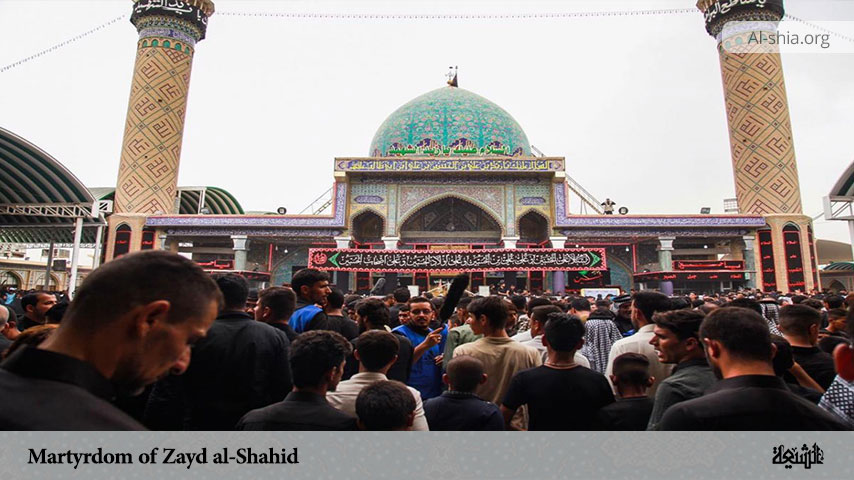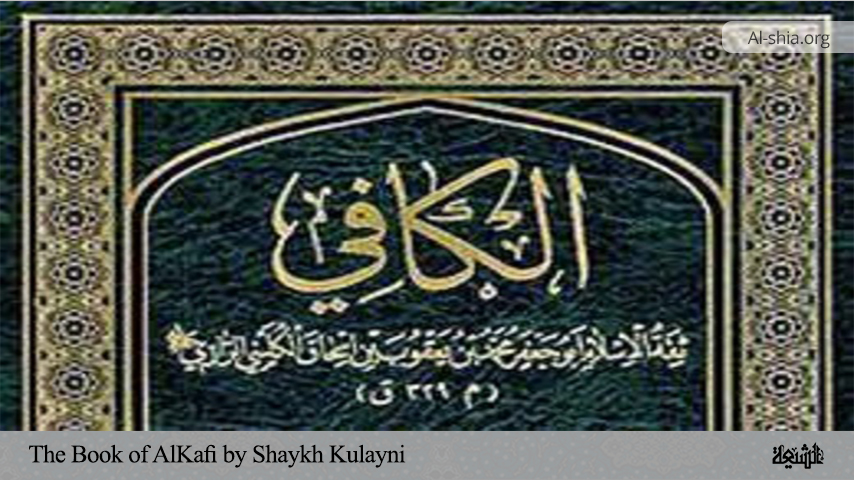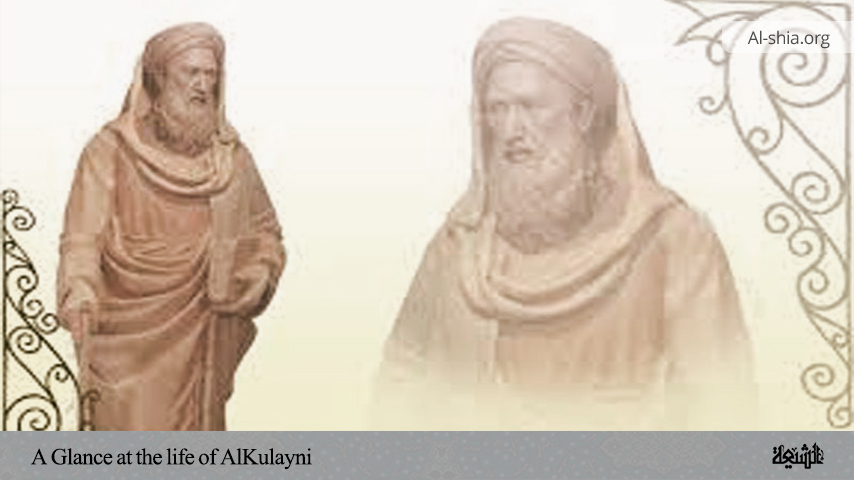Zayd ibn Ali popularly known as Zayd al-Shahīd (Zayd the Martyr), is the son of the Shia fourth Imam; Imam Ali ibn Husain al-Sajjad (PBUH) and a great-grandson of Imam Ali ibn Abi Ṭālib (PBUH) and he was a contemporary with both the Shia fifth and sixth Imams; Imam al-Bāqir (PBUH) and Imam al-Ṣādiq (PBUH) respectively.
The teknonym of Zayd ibn Ali was Abu al-Husain and his titles include Zayd al- Shahīd (Zayd the Martyr) because he was martyred in an uprising against tyranny; and Ḥalif al-Qur’an (Ally of Qur’an) because he was mostly engaged in reciting the Qur’an.
His Birth
There are controversies among the historians on the year of his birth. However, according to a report, it is mentioned that Zayd was born in Medina in 695 AH. Ibn Qutaybah in his book titled “al-Ma’ārif”, republished in 1934 in Egypt mentioned that one of the wives of the fourth Shia Imam was from Sindh (the present-day Pakistan) and that she was the mother of Zayd ibn Ali. In addition, Abd al-Razzaq al-Hasani in his book titled “Zayd Shaheed” published in Najaf claimed that Zayd’s mother was Jodha who was known by Muslim chroniclers as Jayda al-Sindiyya.
His Personality
Zayd is a descendant of Bani Hashim and he is known for his knowledge, asceticism, piety, courage, piety, and dignity. It is documented that Zayd in an attempt to express his servitude to God used to perform prostration, day and night to such an extent that a slight mark was visible on his blessed forehead.
In addition, Zayd after being a student in the presence of his honourable father was one of the distinguished students of the school of thought of Imam Bāqir and Imam Ṣādiq (peace be upon them). Sheikh Ṣadūq also quoted Imam Riḍa (peace be upon him) in the book “’Uyūn Akhbār al- Riḍa (peace be upon him) and wrote: He was indeed one of the scholars from among the family of Muhammad (may God bless him and his family). [Sheikh Ṣadūq, Muhammad ibn Ali, ‘Uyūn Akhbār al- Riḍa, vol.2, p.225]
Zayd is believed the first narrator of Al-Sahifa al-Sajjadiyya of Imam Zain al-‘Abidin. Several works of hadith, theology, and Qur’anic exegesis are attributed to him. In his scholastic positions, he had attained a status whereby the Infallible Imams (peace be upon them) sometimes referred some eminent scholars such as Abu Hamzah Thamālī and Abu Khālid Wāsiṭī to him. For instance, Abu Hamzah Thamālī and Abu Khālid Wāsiṭī have been quoted saying: “We had written a treatise against the opponents, after finishing the work, we took it to Medina to ask Imam Bāqir’s opinion about it, to eliminate its possible problems with the admonition of the Imam (peace be upon him), we came to Medina and we were honoured to be in the presence of Imam (peace be upon him). We informed him about the book, and Imam (peace be upon him) encouraged us and said: Have you presented this book to Zayd? We said, “No.” He said: Read it in his presence and see what his opinion is. According to Imam’s directive, we went to meet Zayd and informed him about the book. He said to us: Read what you have written to me so that I can see how it is. We read the booklet to the end, he said: You worked very hard and made a lot of effort, but this write-up is the cause of your failure. Then he mentioned the contents of our writing one after the other and refuted it one by one. By God, we don’t know, why should we be surprised by the fact that the book was refuted at once, or if should we be surprised by his well-reasoned criticism, and he guided us with a better argument to refute the opponents. Then we returned to the Imam (peace be upon him) and told him the story of the incident and Zayd’s reasoning. Hazrat (peace be upon him) said in the course of his speech: “Our knowledge with all its breadth and scope has also been extended to Zayd.” [Mūsawī al-Maqram, Abdul Razzaq, Zayd al-Shahīd, pp. 15-16]
His Uprising
According to numerous historical reports, Zayd led an uprising known as the Zaidi Revolt against the Umayyads who had taken over the Islamic Caliphate since the death of his great-grandfather, Ali in the middle of the 8th century. According to Tarikh Ṭabari, Zayd set the night of Wednesday 1st Safar, 122 AH to start the uprising along with his companions. But the uprising happened earlier than the scheduled time.
He and his companions left the city on Tuesday evening and prepared for war; Because Yusuf ibn Umar, the governor of Iraq, found out about the movements of Zayd and two of his companions and ordered the officers to arrest them. However, the agents did not find Zayd, but the governors’ information about Zayd’s residence the arrest of his two close associates and the possibility of an enemy attack made Zayd and his associates prepare for battle sooner.
The following reasons have been stated for this uprising:
1. Tyrannies of Umayyads,
2. Invitations from the people of Kufa,
3. Disagreement between Zayd ibn ‘Ali and ‘Abd Allah ibn al-Hasan on waqfs of Imam ‘Ali (PBUH) in Medina which led to the judgment of Khalid ibn ‘Abd al-Malik and its consequences,
4. Travel of Zayd to Syria and his encounter with Hisham ibn ‘Abd al-Malik,
5. Financial charges against Zayd ibn ‘Ali.
Prophecy of Martyrdom
It is documented that the martyrdom of Zayd has been prophesized by the Infallibles. Imam Husain narrated that his grandfather Hadrat Muhammad (PBUHH) prophesied his death: The Holy Prophet put his sacred hand on my back and said: “O Husain, it will not be long until a man will be born among your descendants. He will be called Zayd; he will be killed as a martyr. On the Day of Resurrection, he and his companions will enter heaven, setting their feet on the necks of the people.”
His Martyrdom
After they were informed about the rebellion, the Umayyad army surrendered the supporters of Zayd ibn ‘Ali in the mosque, so from the fifty thousand men who pledged allegiance to him only 280 or 300 men were around him. After two days of war, he was martyred in Kufa on the 2nd of Safar in 120 A.H. at the age of forty-two by Yusuf ibn ‘Amr al-Thaqafi (the Umayyad governor).
He was therefore buried secretly but Umayyads found the burial place, exhumed Zayd’s body sent his head to Hisham ibn ‘Abd al-Malik and crucified his body. His head was at first sent to Syria and then to Egypt. A shrine in Egypt is believed to be the final resting place of the head of Zayd ibn ‘Ali. His body remained crucified to the end of Hisham’s life, then al-Walid ibn Yazid ordered to set his body on fire and they scattered the ashes.
There are two shrines for Zayd, One is in Kafel, Iraq, and the other is in Karak, Jordan. The shrine in Jordan is believed to be the final resting place of the head of Zayd ibn ‘Ali ibn Al-Husain.
The results and consequences of Zayd ibn Ali’s uprising have been stated; one of which is that Zayd’s uprising and after that, Yahya’s uprising laid the groundwork for the fall of the Umayyad dynasty and extended the scope of Shia uprisings to Khorasan. As mentioned in the Tarikh Ya’qūbī, the killing of Zayd ibn Ali stirred up the Shiites of Khorasan and caused them to recount the oppression of the Umayyads against the family of the Prophet (PBUH), and based on this, there was no place where they were unaware of the crimes of the Umayyads.
Claims to the Imamate
Sunni sources as well as Zaydi books have claimed that Zayd claimed to be an Imam. However, from the existing narrations and the explicit confession of his eminence to the Imamate of the twelve Imams (peace be upon them), it is proven against this claim. These narrations clearly show that Zayd, in case of victory, will give the right to its original owners.
For the fact that Zayd ibn ‘Ali led a rebellion via Jihad against the Umayyad Caliphate, certain Shiites were under the impression that Zayd was claiming imamate for himself and therefore started believing in him as the Imam. After his death, some felt that he was the rightful successor to his father, rather than his half-brother Muhammad al-Bāqir. Those who believe in this line of succession are known as the Zaydi sect within Shi’a Islam.
On the contrary, the Ithna ‘Ashari sources do not believe that Zayd claimed imamate for himself. For instance, Shaykh Mufid in his book, titled al-Irshād states thus: “However that was not his intention because he knew of the right of his brother, peace be on him, to the Imamate before him, and of his bequest of trusteeship (wasiyya) at his death to Abu ‘Abd Allãh (i.e., Jafar al-Ṣādiq), peace be on him.” [al-Irshād, p. 404]
In addition, no evidence was noticed in the relationship between Imam Jafar al-Ṣādiq and Zayd ibn Ali that would portray that Zayd ibn ‘Ali was claiming the status of Imamate for himself. Furthermore, according to a report, when Imam Jafar al-Ṣādiq was informed about the martyrdom of Zayd ibn Ali, he felt very sad and set apart a thousand dinars of his own money for the families of those of Zayd’s followers who were killed with him.






